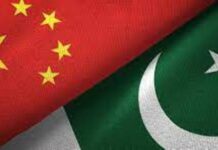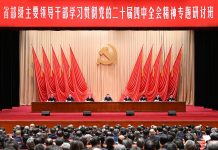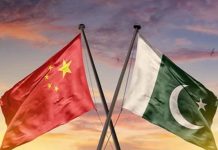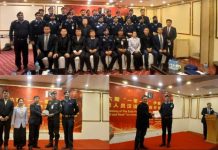Beijing: Beijing will develop into a global exemplar city for digital economy with an overall transformation in production, governance and lifestyle driven by digitization, Yin Yong, mayor of the city, said on Sunday during the second session of the 16th Beijing Municipal People’s Congress.
In recent years, the city has pioneered in key technology, infrastructure and application related to the digital sector. “For example, Beijing built 30,000 5G bases last year. It has about half of the country’s generative artificial intelligence large model products available for the public. It has a 160-square-kilometer high-level demonstration zone for automatic driving,” Yin said while delivering a government work report during the opening ceremony of the session. In 2023, the city’s GDP reached 4.4 trillion yuan ($61.16 billion), up 5.2 percent year-on-year, while the digital economy contributed 42.9 percent to its GDP, compared with 41.6 percent in 2022. Beijing has set a GDP growth target of 5 percent for this year, according to the government work report.
In 2024, the city will further improve underlying technology of AI and make its AI models as advanced as international ones, promoting its application in government administration, the medical field, industries and life services, according to the work report.
Automatic driving will be applied in more scenarios such as airports, railway stations and urban road cleaning. The city is developing more emerging digital infrastructure such as 10-gigawatt optical network and internet of vehicles to serve the construction of a smart city, the report added.
Luo Aiwu, director of Beijing Building Construction Research Institute Co’s scientific research and quality management department, said at a news conference on Sunday that construction of a smart city aims to bring better living experiences for residents and improve their sense of happiness.
“We can foresee a broader coverage of digital devices. Intelligent transport will ease traffic jams. The internet of things can monitor pollution. We can also explore more possibilities such as showing the location of barrier free facilities as well as number of tourists at an attraction, on portable devices to improve tourism experience,” said Luo, who is also a member of the 14th Beijing Municipal Committee of the Chinese People’s Political Consultative Conference. –The Daily Mail-China Daily news exchange item






